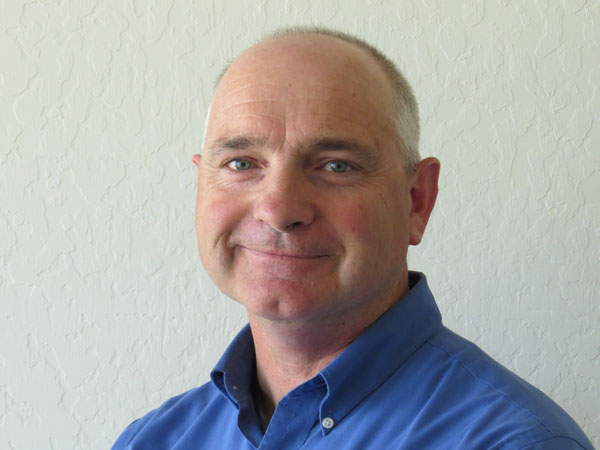Published in the July 8-21, 2015 issue of Morgan Hill Life
By Marty Cheek

Marty Cheek, publisher Morgan Hill Life
Pope Francis’ new encyclical on climate change might very well turn out to be one of the most important environmental statements ever produced by the Catholic Church. But it’s also being decried as misplaced by some who say Francis — a man of faith who earned a technician’s degree in chemistry — has no business discussing matters of science.
Coincidentally a day after the encyclical – a papal letter sent to all bishops of the Roman Catholic Church – titled “Laudato Si” (or “Praised Be”) was launched, a report by a team of Stanford scientists came out in the journal Science Advances providing evidence using fossil record and extinction counts from a range of records that the Earth is undergoing a major extinction of species — and human impact on the environment is the primary cause of it. That premise is nothing new. The difference with this report is the extremely conservative criteria the scientists used when it came to determining how many species have recently gone extinct. Even the conservative estimate numbers showed it is highly likely the Earth is now facing an environmental cataclysm on a scale of what brought an end to the dinosaurs’ world 65 million years ago.
“Without any significant doubt we are now entering the sixth great mass extinction event,” said Professor Paul Ehrlich, at the Stanford Woods Institute for the Environment. “Species are disappearing up to about 100 times faster than the normal rate between mass extinctions, known as the background rate.”

Photo courtesy outsidethebeltway.com
Pope Francis issued an encyclical June 18 in Vatican City focusing on the moral reasons for acting on human-caused climate change. He based those reasons on science.
Even before the Vatican released “Laudato Si,” American politicians were weighing in against it. Presidential contenders Rick Santorum and Jeb Bush, both members of the Catholic faith, publicly denounced the Pope, saying he should keep his nose out of science and public policy.
“The church has gotten it wrong a few times on science,” Santorum said. “We probably are better off leaving science to the scientists, and focusing on what we’re really good at, which is theology and morality.”
The encyclical primarily focuses on the moral reasons for acting on human-caused climate change, and basis those reasons on science. Charged with the mission of caring for the poor by the founder of their faith, the Pope and all Catholics — and Christians in general, for that matter — should take global warming and climate change issues to heart. The extreme weather events such as droughts, blizzards, hurricanes and tornadoes caused by the increase of greenhouse gases in the atmosphere will wreck havoc with the quality of life for many living in poverty in developing nations. And the fact that climate change is altering Earth’s environment and causing the extinction of many species warrants even stronger responsibility for Catholics and all other faiths to take action as stewards of God’s creation.
Most likely for politically opportunistic reasons, some politicians and media pundits fail to see how the science of climate change can be connected to the morality mandate of theologians such as Pope Francis.
With the encyclical, we’re seeing a trinity of politicians, theologians, and scientists wrestling with how public policy, faith-based ethics, and scientific facts all are components related to the most important ethical question humanity must answer in the 21st century: how significantly does our fossil fuel-based industrial civilization damage the Earth’s ecosystem and put at jeopardy the healthy and safety of at least three billion people in developing nations (many of whom have not been able to enjoy the benefit of those fossil fuels)?
The fact that the Pope, considered by 1.2 billion Catholics to be their divinely-appointed leader, can pronounce to the world that climate change is human-caused and is negatively impacting the world’s poor must create a real dilemma for American politicians who deny the reality of global warming. The encyclical jabs a moral stick into the eye of their oil-funded ideology. Americans got a glimpse of how this ideology requires the climate change denialists to put on blinders when Texas Sen. Ted Cruz took on the chairmanship of the Senate Space, Science, and Competitiveness Subcommittee earlier this year and began pushing NASA to adopt a “more space, less Earth” strategy. The Republican lawmaker, during a hearing on the $18.5 billion budget request for NASA’s fiscal year 2016, stated he believes America should focus more on deep space exploration such as potential missions to Mars rather than studying Earth and specifically global-warming scientific research. Much like the Catholic Church leaders centuries ago used intimidation to censor Galileo’s science-based view of heliocentrism, Senator Cruz and his cohorts believe in using the power of the public purse to prevent NASA from using satellite science-based research to study global warming.
It’s still too early to determine whether or not the heated discussion that now follows Pope Francis’ release of “Laudato Si” will lead the public and politicians in the modern zeitgeist to view the moral questions and imperative for action related to the challenge of global warming. But with the theological weight of the Catholic Church now pushing the question of what we must do about the 21st-century’s most pressing challenge for humanity, Pope Francis’ encyclical can be a game changer for climate change.






